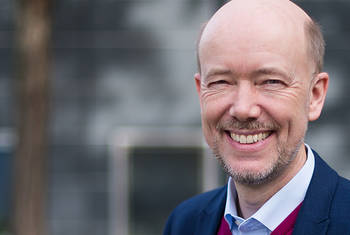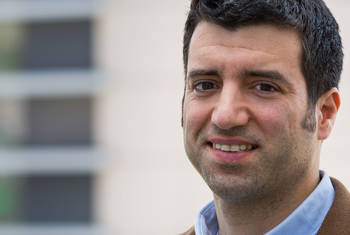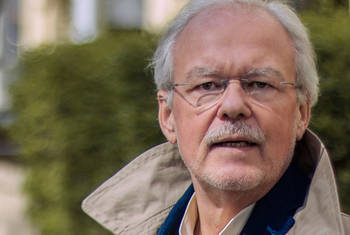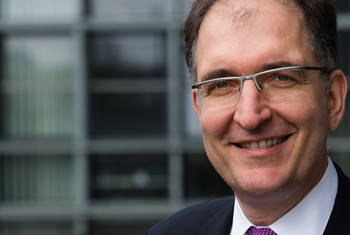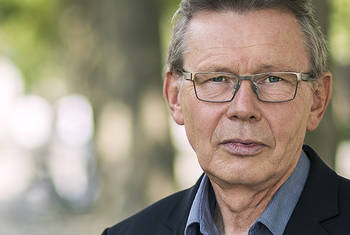Kai Sundmacher How Can Chemicals Be Produced in a More Sustainable Process?
Kai Sundmacher is Director and Scientific Member of the Max Planck Institute for Dynamics of Complex Technical Systems. He is also Full Professor of Process Systems Engineering at the Otto von Guericke University Magdeburg and Guest Professor at the East China University of Science and Technology. Among his major research interests are the dynamics of chemical processes, multifunctional reactors, and electrochemical membrane reactors. Since 2014, he is a spokesperson of the Max Planck Research Network ‘Synthetic Biology’. Moreover, he is Review Editor of Fuel Cells and Executive Editor of Chemical Engineering Science. For his scientific work, he has won many awards, including the Hoggewerff Lecture Award in 2013.
Area of Research
Process Engineering
since 2001
Director and Scientific Member
Max Planck Society (more details)
Max Planck Institute for Dynamics of Complex Technical Systems
since 2010
Guest Professor
East China University of Science and Technology
since 1999
Full Professor
Otto-von-Guericke University Magdeburg (Otto-von-Guericke-Universität Magdeburg)
Department of Process and Systems Engineering
since 1998
Head of Research Group 'Process Systems Engineering'
Max Planck Society (more details)
Max Planck Institute for Dynamics of Complex Technical Systems
1997-1998
Post-doctoral Researcher
University of Newcastle
Department of Chemical and Process Engineering
1995-1998
Research Group Leader
Technische Universität Clausthal
Institute of Chemical Reaction Engineering
1990-1995
Research Assistant
Technische Universität Clausthal
Institute of Chemical Reaction Engineering
1998
Habilitation
Technische Universität Clausthal
1995
PhD
Technische Universität Clausthal
Institute of Chemical Process Engineering
1990
Diploma in Process Engineering
Technische Universität Clausthal
- Max Planck Research Network 'Synthetic Biology' (Spokesperson since 2014)
- German Research Foundation (DFG) Panel 'Chemical & Thermal Process Engineering'
- Research Center for Dynamic Systems: Biosystems Engineering (University of Magdeburg)
- DFG Collaborative Research Center 'Integrated Chemical Processes with Liquid Multiphase Systems'
- German-American Frontiers of Engineering Symposia (Chair 2007-10)
- Selection Committee of German Scholarship Foundation
- Member of Advisory Board of Ullmann's Encyclopedia of Industrial Chemistry
Prizes
- Hoggewerff Lecture Award (2013)
- Dr. Meyer-Struckmann Scientific Award of Techincal University Cottbus (2008)
- Arnold-Eucken Award of German Society of Chemical Engineers (1999)
- Carl-Zerbe Award of German Scientific Society of Petrochemistry (1998)
Fellowships
- Einstein Professorship of Chinese Academy of Sciences, Beijing (2009)
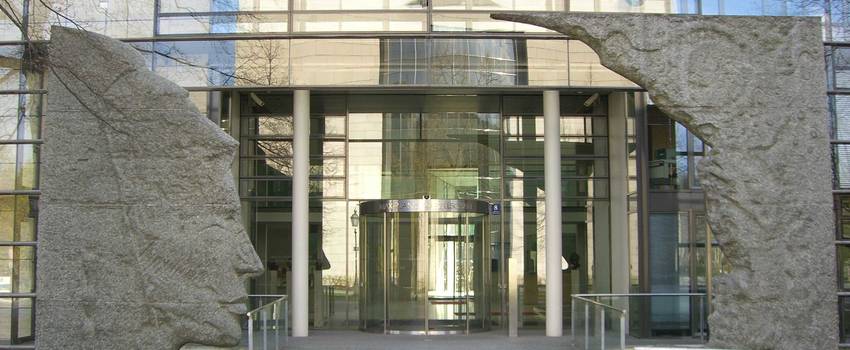 © Maximilian Dörrbecker
© Maximilian Dörrbecker
Max Planck Society
Magdeburg, Germany"The Max Planck Society is Germany's most successful research organization. Since its establishment in 1948, no fewer than 18 Nobel laureates have emerged from the ranks of its scientists, putting it on a par with the best and most prestigious research institutions worldwide. The more than 15,000 publications each year in internationally renowned scientific journals are proof of the outstanding research work conducted at Max Planck Institutes – and many of those articles are among the most-cited publications in the relevant field." (Source)
Institute
Max Planck Institute for Dynamics of Complex Technical Systems
"In 1998 the Max Planck Institute for Dynamics of Complex Technical Systems was established. The institute in Magdeburg is the first institute of the Max Planck Society dedicated to the engineering sciences and is intended to bridge the gap between basic research and industrial applications.
At present 240 employees are working at the institute in Magdeburg. Their main research activities are focused on the analysis and optimization of highly complex processes in chemical and biological engineering, on questions of systems biology and systems theory, and their mathematical foundations, as well as on modern methods of computer simulation for the above mentioned challenges.
The aim is to develop mathematical methods to control and optimize technical systems, to model complex processes in chemical and biological engineering, to analyze the foundations and the dynamics of chemical reaction and separation processes in order to design and optimize modern, efficient and sustainable processes." (Source)
Map
KAI SUNDMACHER’s aim is to introduce a more sustainable process to chemicals production. As he explains in this video, for new technological developments in chemical process engineering a new methodology is needed that is able to include many decision variables in order to find the best pathway from the raw materials to the target product. Therefore, his research team developed an elementary process function (EPF) methodology which allows them to analyze the pathway of fluid elements and the goal is to steer this fluid element along an ideal pathway towards the final state, thereby discovering the most sensitive manipulating variables. Already, the researchers have found many real-world applications for this EPF methodology, such as in the chemicals production industry, in solids production and in biotechnology.
LT Video Publication DOI: https://doi.org/10.21036/LTPUB10525
Towards a Methodology for the Systematic Analysis and Design of Efficient Chemical Processes: Part 1. From Unit Operations to Elementary Process Functions
- Hannsjörg Freund and Kai Sundmacher
- Chemical Engineering and Processing: Process Intensification
- Published in 2008
Methodology for the Design of Optimal Chemical Reactors Based on the Concept of Elementary Process Functions
- Andreas Peschel, Hannsjörg Freund and Kai Sundmacher
- Industrial & Engineering Chemistry Research
- Published in 2010
Model-Based Identification and Experimental Validation of the Optimal Reaction Route for the Hydroformylation of 1-Dodecene
- Benjamin Hentschel, Gregor Kiedorf, Martin Gerlach, Christof Hamel, Andreas Seidel-Morgenstern, Hannsjörg Freund and Kai Sundmacher
- Industrial & Engineering Chemistry Research
- Published in 2015
Optimal Reactor Design via Flux Profile Analysis for an Integrated Hydroformylation Process
- Nicolas M Kaiser, Michael Jokiel, Kevin McBride, Robert J Flassig and Kai Sundmacher
- Industrial & Engineering Chemistry Research
- Published in 2017
Dynamic Flux Balance Modeling to Increase the Production of High-Value Compounds in Green Microalgae
- Robert J Flassig, Melanie Fachet, Kai Höffner, Paul I Barton and Kai Sundmacher
- Biotechnology for Biofuels
- Published in 2016


